The Sometimes Bloody, Sometimes Funny, ‘Fargo’ Finale, Explained
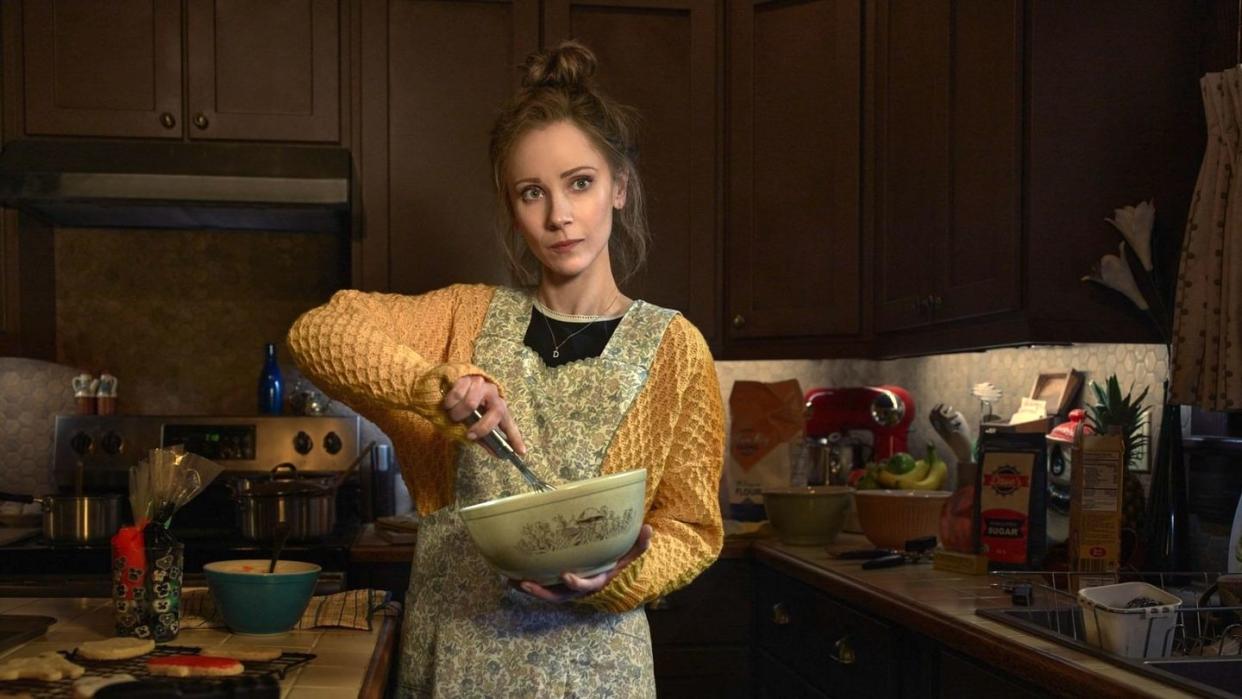
"Hearst Magazines and Yahoo may earn commission or revenue on some items through these links."
The following story contains spoilers for the end of Fargo Season 5.
THROUGH ITS FIVE mostly stand-alone seasons on the air, FX's Fargo has been a lot of things: a cat-and-mouse thriller, an organized crime period piece, a Psycho/Bonnie and Clyde-esque tale of attempting to find a better life—and paying the ultimate price. With each passing season, the show's themes got more complex and its concept got a little higher.
But Season 5, which starred Juno Temple, Jon Hamm, and Jennifer Jason Leigh among many talented others, brought things back to basics. Rather than try to do too much, it did what Fargo does best: a twisty-turny crime story, centered on interesting, quirky, well-developed characters, and focused on one truly central theme. And for Season 5, without question, that theme was debt.
That "debt" is at the core of Fargo's fifth iteration is hardly subtle—Lorraine Lyon (Leigh) is known as the country's debt queen, building a massive wealth from inheriting with her company what some owe others; Roy Tillman (Hamm) is a maniacal, egotistical, abusive county sheriff who more-or-less believes he has ownership over literal people, and believes his long-missing wife who has begun a new life elsewhere (Temple) is owed back to him; the killer known as Ole Munch (Sam Spruell) is quite literally a 500-year-old sin-eater who has gained immortality and a personal code based on the fact that he once took on the debts of the wealthy for a couple bites of food (more on that in a little bit).
Through the season's first 9 episodes, those themes of debt were at the season's very core. Those central characters, along with a do-good trooper named Witt Farr (Lamorne Morris), a local deputy with her own debt problems named Indira Olmstead (Richa Moorjani), and a try-hard bad guy who in another life could've been a good guy if his dad wasn't Roy Tillman (Joe Keery), explore the theme of debt and how it can impact and destroy a life—ultimately landing on one ultimate takeaway: the answer, literally and figuratively, is always forgiveness. Unless if you're Roy Tillman.
Let's dive into some of the Fargo Season 5 finale's biggest questions and biggest moments.
What was happening with Ole Munch—aka "Oola Moonk"—in Fargo Season 5's final scene?
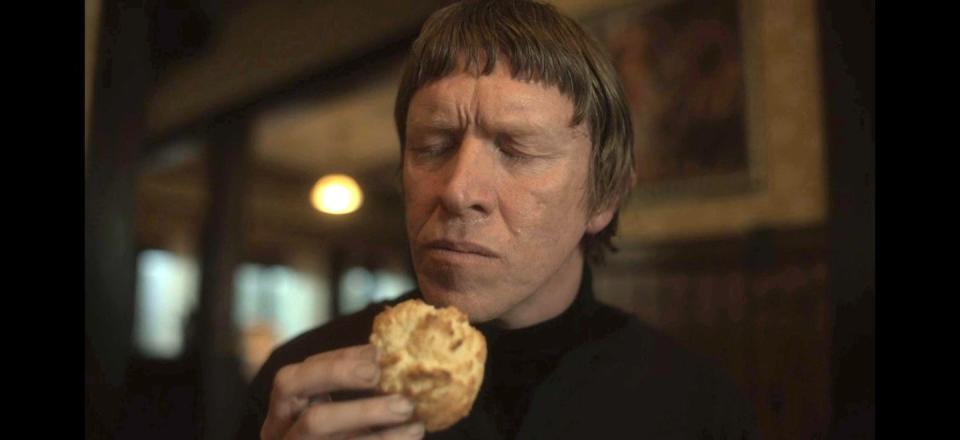
While Fargo Season 5's drama primarily centers on Dot (Temple) and Roy (Hamm), it's the mysterious and deeply-bizarre Ole Munch (Spruell) who's the season's most intriguing and enigmatic character; more or less, we know where everyone else stands. With this guy, it takes the entire season to have any semblance of an idea.
While we saw a flashback of Munch's 500-years-ago sin-eating past in Episode 3, it wasn't entirely clear if this was meant to be taken literally or simply represent some kind of symbolism, meaning that people like Munch have been eating the shit of the wealthy for generations and generations. After 7 more weeks of Munch running his own agenda and getting revenge on Roy and Gator for screwing him over, we finally got the truth: Munch is immortal, he did eat sin 500 years ago, and he's a weird ass dude.
Personally, I kind of thought Munch's Fargo Season 5 arc had come to a conclusion in Episode 9; he blinded Gator as a way to get revenge on both him (for killing the old woman whose house he was living in) and Roy (for screwing him over, trying to kill him, and generally being evil), and he freed Dot from the hole she was stuck in on Roy's ranch ("Now a tiger is free," he told her, coming full circle with their Episode 1 confrontation). But it wasn't all the way full circle.
When Dot returns from Witt's grave in the Season's final scene, she finds that Munch has paid her husband, Wayne (David Rysdahl), a visit—he believes they still have unfinished business. Even though he helped her even her battle with Roy, he still believes he's owed from her after losing an ear and a partner during their initial meeting—a pound of flesh for a pound of flesh, he repeats.
His initial appearance is chilling; we know from the whole season just how much violence Munch can incur when he wants to. Noah Hawley loves to include references to the films of Joel and Ethan Coen (writers and directors of the original Fargo film) in his Fargo world, and one of the closest to that in Season 5is the fact that Munch clearly shares the same chilling air of violence that characters like Anton Chigurh (Javier Bardem in No Country for Old Men) and Gaear Grimsrud (Peter Stormare from Fargo) constantly possess.
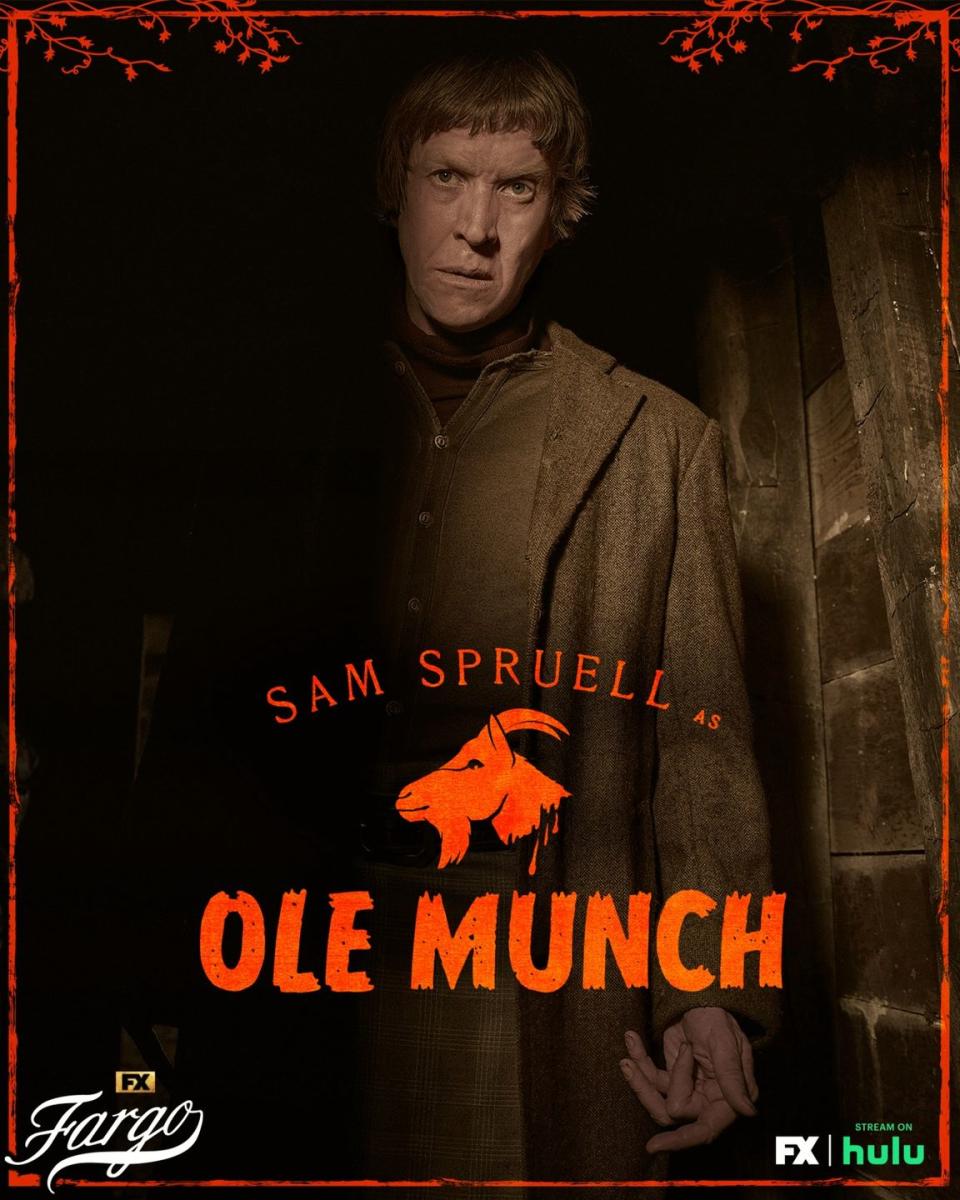
But it's important here to remember that Season 5 opened with an on-screen definition of "Minnesota Nice," which turns out to be the very thing that bails out our central family. Munch's presence scares everyone—until they just start talking to him. Wayne grabs a soda (or, "a pop," as he calls it). Dot starts talking. Scotty (Dot and Wayne's daughter) starts talking. Munch shares his real name (Oola Moonk, an alternate version of "Ole Munch,") and tells his life-story of coming over on a boat, living hundreds of years ago, and eating the sin of the rich without even really knowing what he's doing.
Dot makes him an offer: they're having chili for dinner, and making biscuits to go with them. Munch can have some if he just helps a little. And so they start, and just like when he ate the sin, Munch hardly has a choice—he washes his incredibly dirty hands (some symbolism of the past there for sure), and begins to cook. He's talking about whatever, and Dot, Wayne, and Scotty just keep talking about other things. It's a really interesting illustration from Hawley and company of how some people love to dwell on the past, but the real solution is just to move forward.
Eventually, that's where Dot and Munch land. Munch explains his curse, how he believes he's owed this debt still. But Dot, instead, preaches forgiveness; she understands his frustration from losing his partner and his ear, but reminds him that he was hired by Roy—a terrible man. He feels a need to live up to his code and get what he's owed, but Dot suggests rather than that, he forgive. Just like she forgave Gator earlier in the episode, Munch should forgive her. Let it go and move on.
How? Munch wonders aloud. He's been on this path for hundreds of years, and what could possibly stop it? Dot tells him bluntly: eat another meal. But this time, it needs to be one made not with the hate and fear of someone wanting to pass on life debts (recall the fear and tears both before and after Munch ate the disgusting food in the 500-years-ago flashback), but rather food made with love and joy. These biscuits are just that—Munch bites in, and the season concludes as his mouth emerges into a huge, unabashed smile. Whatever curse was upon him seems to have finally been lifted.
What does Witt Farr's fate mean in the grand scheme of Fargo?
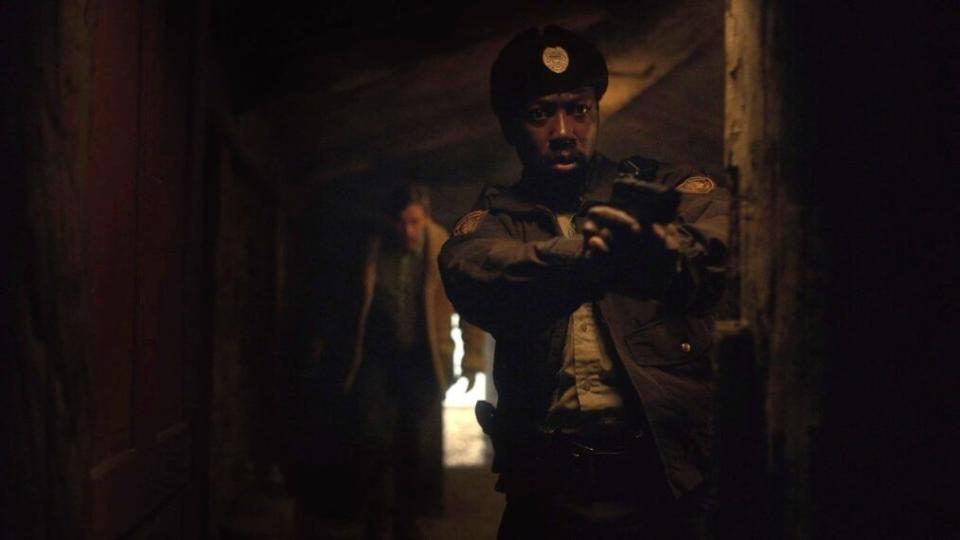
Unfortunately, Witt Farr (New Girl star Lamorne Morris) was simply too pure of a character for law enforcement in the world of Fargo. In a season filled with characters working for different agencies of the government—Roy, Gator, Indira, the FBI agents, and Witt all technically carry badges—Witt is the only one seemingly committed to simply doing good for good's sake. Indira is a good person, but has other things going on and eventually leaves her job for a number of reasons. Roy and Gator are not good people. The FBI are juggling a number of agendas of their own. Witt, for better and for worse, just wants to do good.
And that's eventually what dooms him. He wants to make sure Dot is safe, and that Roy—who caused her so much pain and the kidnapping chase that got Witt involved in the first place—is brought to justice. And so when he finds the bloody trail that Roy left behind after being shot by Dot, he follows it into the Tillman ranch's underground tunnels. Unfortunately for Witt, Roy has a very sharp knife—and it eventually is used to take Witt's life.
And though Witt dies—and we learn in the season's epilogue scenes of his loving family, adding to the tragedy—the mere fact that he slowed Roy down allowed for the FBI to catch up (on Gator's tip) and catch the violent, abusive sheriff once and for all. Witt was too pure for this world, but his demise was not for nothing.
What kind of hell does Roy Tillman's future in prison entail?
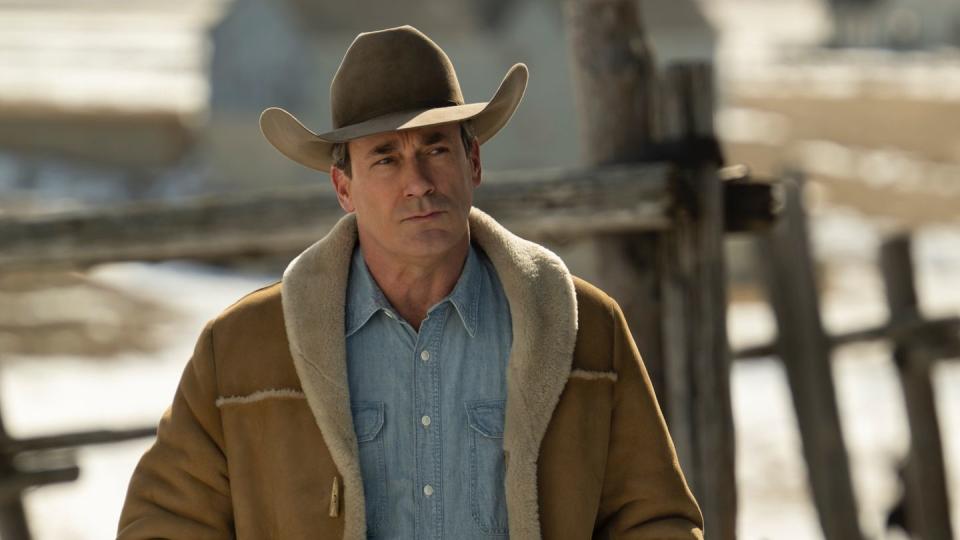
A crime story like Fargo is nothing without a good villain, and Jon Hamm gave one of his greatest post-Mad Men performances as the maniacal, violent, narcissistic Roy Tillman. And so it was especially satisfying to see what hell awaited him in prison once he was finally caught and in custody. Before the episode started, I thought Roy would end up in the same place most villains in the crime genre do: a bloody, mangled mess. Where he actually ends up is far worse.
The season's most interesting character arc belongs to Lorraine Lyon (Jennifer Jason Leigh), the cold and extremely wealthy debt queen who we see begin to care about Dot, the wife of her beloved son Wayne, in real time. When she learns the pain that Roy inflicted on her in the past, Leigh does an incredible job in clocking what Lorraine goes through internally. By the end of the season, it's clear that she's fully on Dot's side—and wants to see Roy suffer for the pain he's not only inflicted on Dot, but all the women in his life.
And using her impressive wealth, she's ultimately able to do that. Roy is a character who always feels so empowered to do whatever he wants; in an early scene alongside the FBI agents, he blatantly ignores their requests to "enforce the laws" and steps out of a hot tub without a care, showing off his full birthday suit, pierced nipples included.
In prison, however, the tables have finally turned; Lorraine has the exact ability to take control of almost everyone in the prison. She's paid off their debts, filled their commissaries, and given one simple order: make Roy Tillman's life a living hell. He thinks she wants him dead, but Lorraine corrects him; she wants anything but. She wants him to spend the rest of his waking life in the same pain that he put all three of his wives through. And with the resources now at her disposal, she won't have any problem making that happen.
You Might Also Like

